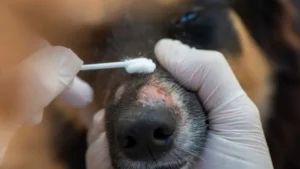Table of Contents
Applying for an adoption, preparing your house, budgeting, and making the time commitment necessary to maintain a healthy and happy environment for your new pet are all covered in this extensive guide to welcoming a furry friend.
Pet Adoption Rules
Choose the Right Pet
It’s important to do your research before adopting a pet to make sure it’s a good fit for your family. Breed, size, activity level, and temperament are just some of the ways in which various animals might differ. Compatibility and a smooth adoption process can be ensured by learning about these characteristics.
Think about where you live, how active you are, and how much room you have to work with. If you have a small apartment, a little dog or cat can be a better option than a large one because they require less space. Also, consider how much time you have for physical activity and intellectual challenge. Dogs of high-energy breeds like Border Collies and Retrievers need regular walks and runs.

Studying the needs and habits of various species and kinds can teach us a lot. Investigate the breed’s typical activity levels, grooming preferences, and health problems. Find a pet that complements your way of life and can easily be integrated into your regular activities.
Think about the people in your household and any pets you may already have. Some animals do better in homes with many pets, while others do better as the only pet in the family. Doing some research on the many breeds available will allow you to make a well-informed pick that suits your family’s needs.
Find a Trustworthy Adoption Agency
Choosing a trustworthy adoption agency is critical for carrying out a lawful and moral adoption. Shelters, rescue organizations, and even breed-specific organizations all exist to help animals find new homes. Each variety has its own function and rules for adopting a pet but they all work toward the same end: finding shelter animals permanent, loving homes.
Think about the organization’s history and reputation before deciding on an adoption service. Read up on the experiences of other users by looking at evaluations and testimonies they’ve posted online. Organizations with good reputations will have open adoption processes, detailed pet adoption requirements, and stringent selection criteria.

Because they take in and care for so many different kinds of animals, animal shelters are great first stops. They put in a lot of effort to find good homes for animals. In-depth familiarity with the animals they care for is a hallmark of rescue organizations and breed-specific rescues. These groups can be a great resource for learning more about your pet’s unique character, habits, and requirements.
It’s recommended to pay a personal visit to the adoption agency. You can tour the facilities, see the animals, and get your questions answered about the pet adoption requirements. A trustworthy group will put the animals’ needs first and provide them with food, shelter, and veterinary treatment.
There are going to be a number of rules for adopting a pet, adopters will be expected to submit references, sign an adoption agreement, and possibly undergo home visits if the adoption agency is credible. These pet adoption requirements are in place to make sure the adoption is suitable and that the animal will be cared for properly.
It may take some time, but it is well worth it to choose a good adoption agency. You may give a deserving animal a forever home and feel good about the adoption process when you work with a trustworthy group.
Fill Out the Adoption Form
Adopting a pet requires sticking to the pet adoption rules. Adoption agencies follow established rules for adopting a pet to determine whether or not a prospective adoptive family is a good fit for the pet. The rules for adopting a pet are set up to make sure the pet is adopted by the best possible person and that the adoption goes smoothly for both parties involved.
The initial pet adoption requirements include filling out an adoption form. The first section of this form asks for some background information about you and your family. Answers will be used to determine whether or not you are a good fit to care for the animal after adoption, so please be as truthful and detailed as possible.
Prepare a Welcoming Home
If you want your new pet’s transition to go smoothly, you should make your home as safe and friendly as possible. Some important pet adoption rules to follow before bringing your pet home are outlined in this section.
Pet-proofing your house should be your first priority. This entails getting rid of things like poisonous plants, poisons, swallowable objects, and dangling cords and wires. Lock up cleaning supplies and garbage cans so your pet can’t get to them. In addition, you should guarantee that your outdoor space is safe and devoid of any potential escape routes.

The provision of essential materials is also an important part of getting ready at home. You’ll need to buy supplies for your new pet, including food and water containers, a bed, some toys, a collar or harness, and a leash. Kitties need a spot to scratch and clean their claws, as well as a litter box. Prepare these items in advance of your pet’s arrival to make their transition easier.
During the adaptation phase, it is helpful to give your pet a distinct place of its own. Make sure your pet has a safe place, such as a kennel or bed, to go when it needs some time to itself. They can feel safe and comfortable here while they adjust to their new environment.
Creating a regular schedule for your pet is also one of the important pet adoption rules, important for their health and mental stability. Establish a routine that includes eating, playing, exercising, and using the restroom. Maintaining a routine and providing structure will give your pet a sense of security and ease the transition.
Think about what your pet will require based on its breed or species. Specialized supplies or planning may be necessary for some animal companions. If you decide to take in a reptile, for instance, you’ll need to provide it with a habitat that meets its specific needs in terms of temperature and lighting.
Budgetary Factors
Having a pet requires a financial commitment. It’s important to know what to expect financially if you want to provide the best care for your pet.

Adoption fees can range from free to several hundred dollars, depending on the group and the animal in question. The expense of the pet’s medical care, including vaccines, spaying or neutering, and microchipping, is often included in the adoption price.
Expenses include vet visits, vaccines, flea and tick preventive products, flea collars, flea dips, grooming, food, toys, and bedding are ongoing. Maintaining the health of your pet requires regular visits to the vet. They are protected from infectious diseases thanks to vaccinations and from parasites thanks to preventative drugs. The frequency and extent of grooming tasks like brushing, nail clipping, and professional styling should be determined by the breed.
The price tag on pet nourishment will be proportional to your pet’s size and specific dietary requirements. For the sake of your pet’s health and happiness, you should only feed them premium pet food. Pets benefit from both mental and physical stimulation from toys and bedding.
It is important to have savings set aside for unexpected veterinary fees in addition to these routine expenses. Having a financial safety net in place is one of the most important pet adoption requirements as they may unexpectedly require therapy or surgery.
Cost Breakdown
- Adoption Fees: Can range from free to several hundred dollars, often including medical care like vaccines, spaying/neutering, and microchipping.
- Ongoing Expenses: Regular vet visits, vaccinations, flea and tick prevention, grooming, food, toys, and bedding.
- Emergency Fund: Savings for unexpected veterinary fees.
Note: There might be affiliate links mentioned here. We may receive a commission if you purchase a product through an affiliate link. There is no additional charge for you. Please do your own research before making any online purchases.
How to Take Care of Your Pet Properly
A pet’s general health and happiness depend on receiving quality medical attention. Vaccinations, spaying/neutering, frequent veterinary checkups, grooming, and exercise needs are some of the topics covered in this area.
Vaccination is one of the crucial rules for adopting a pet. It is a tool in the fight against infectious illnesses. In order to develop immunity, puppies, and kittens need to undergo a series of vaccines, while adult pets require booster doses on a regular basis. Vaccinations offer defense against deadly feline infections such as feline leukemia, distemper, and parvovirus. Talk to your vet about creating a vaccination regimen that works for your pet.

Spaying and neutering is not just one of the pet adoption requirements but pet owners have a moral obligation to spay or neuter their animals. Spaying and neutering not only prevents undesired litters, but also has health benefits, lowers the risk of some malignancies, and aids in the management of behavioral problems. Both male and female pets can be sterilized through surgical procedures known as spaying and neutering. Spaying and neutering should be done at the right time, which varies by species and breed, talk to your vet to know when that is.
Maintaining the health of your pet requires regular visits to the vet. During these checkups, the vet can examine your pet thoroughly, give him or her any necessary vaccinations or preventive medicines, and look for signs of any underlying health problems. Your vet may also bring up parasite prevention, dental care, and proper diet during these checkups.
The breed, species, and coat type of your animal will determine its specific grooming requirements. Regular brushing may be necessary to prevent matting and maintain the health of the coat on a pet with a long or thick coat. Regular brushing can reduce hair loss and hairballs.
There are also some pets whose coats or hairstyles need the attention of a professional groomer. Grooming entails more than just washing and brushing one’s hair and skin.
Your pet needs regular exercise to maintain physical and mental health. Species, breed, age, and health all play a role in determining how much and what kind of exercise is best for your pets. Felines may appreciate interactive toys and climbing structures, while canines require daily walks or recreation in a safe place. Obesity, heart disease, and misbehavior related to excess energy can all be avoided with a regular exercise routine.
One of the most important rules for adopting a pet is always making sure your pet is getting a healthy and well-rounded diet that takes into account their age, breed, and current health status. To find out what kind and how much pet food your pet needs, talk to your vet. Maintaining a healthy weight, a robust immune system, and general health all depend on getting the nutrition you need.
Vaccination Schedule
- Puppies and Kittens: Require a series of vaccines to develop immunity.
- Adult Pets: Need regular booster doses.
- Common Vaccines: Protect against diseases like feline leukemia, distemper, and parvovirus.
Commitment Time and Instruction
Pets thrive with love and care from their owners. In this piece, we’ll discuss the benefits of bonding with your pet through activities like exercise, play, and training.
Spend some time every day satisfying your pet’s social, emotional, and mental requirements. Dogs, for instance, gain from regular walks, stimulating playtime, and structured training. Toys and games that cater to a cat’s innate drives, such as hunting and climbing, make for great fun. Puzzle toys, reward dispensing toys, and regular training sessions are all great ways to keep your pet’s mind active and prevent boredom.

Proper pet care includes training the pet. Teaching your pet the basics of obedience, including sit, stay, and come, not only makes them more manageable but also strengthens the link between you and your pet. Training not only prevents behavioral issues but also stimulates the mind. If you want to train your dog effectively, you should think about taking obedience lessons or consulting a professional trainer.
When training a pet, it’s important to be patient, and consistent, and use positive reinforcement. Positive reinforcement, like treats, praise, and affection, helps them learn to behave in the way you want them to. When training your pet, stay away from any techniques that include punishment.
Spending time together and gaining your pet’s trust is essential to developing a solid friendship. Play with your pet, give it lots of affection, and take it on outings if those are things it enjoys. Having a deeper emotional connection with your pet makes your relationship with them richer and more satisfying.
FAQs
What characteristics should I look for in a pet?
Think about your living environment, your activity level, the space you have, and the time you can devote to exercise and cerebral stimulation before settling on a pet. Before deciding on a breed or species, it’s important to do some research to make sure it will fit in with your home and routine.
Why is it preferable to adopt from a well-established agency?
When adopting, it’s important to work with a credible agency to make sure everything goes smoothly and you don’t miss any pet adoption requirements. These groups offer an extensive guide to welcoming a furry friend, open adoption policies, detailed standards, and stringent criteria for selecting adoptive families. In addition, they put the animals’ needs first by giving them food, water, and veterinary care as necessary.
What exactly are the rules for adopting a pet?
An adoption application is a standard first step of all the pet adoption requirements, and it asks for details about you, your household, and your history with pets. The organization will use this data to determine whether or not you will be a good fit as a pet owner and whether or not the animal will be safe in your care.
What should I do to get my house ready as per the pet adoption requirements?
The pet adoption requirements require you to pet-proof your home by getting rid of harmful plants, chemicals, objects, and cables. Lock up medicine cabinets and garbage cans to keep dangerous materials out of the wrong hands. Make sure your pet has everything it needs, a comfortable place to sleep, and a regular schedule to help ease the transition.
How much of a financial commitment is adopting a pet?
There are several costs associated with pet ownership, such as the initial cost of adoption, annual checkups, vaccines, grooming, food, toys, and any unforeseen medical bills. An important one of the pet adoption requirements is that you need to have a budget and an emergency fund in place.
To what extent will I be responsible for my new pet’s health and vaccinations?
Vaccinating your new pet is important for illness prevention. Spaying and neutering are vital responsibilities, and regular veterinary checkups are essential to their health. Your pet’s breed and species will determine its specific grooming requirements.
How much time per week should I set aside to tend to my pet’s training and exercise requirements?
Pets need both physical and mental stimulation on a regular basis. Your pet’s species, breed, age, and health all have a role in how much and what kind of exercise they need. Make sure they get the time they need every day to engage in pursuits that will benefit their health and development.
When it comes to caring for various species of pets, what are the fundamentals of grooming?
The breed, species, and coat type of your animal will determine its specific grooming requirements. Brushing your pet on a regular basis may be necessary while brushing your cat may help reduce shedding. Grooming services and specialist coat maintenance may be necessary for some pets.
What if I already have kids or other animals at home? Can I still adopt a pet?
Adopting a pet is fine, even if you already have kids or other animals at home. Find out what species or breeds have a good reputation for getting along with kids and other pets. Successful coexistence between pets requires careful introductions and a slow but steady acclimation process.
How long-term of a commitment is getting a pet?
Adopting a pet is a long-term commitment. Throughout their entire lives, pets require constant nurturing and companionship. They bring happiness, love, and companionship to the home, and are quickly accepted as beloved members of the family.
How can I form a lasting friendship with my new pet?
Train your pet with patience and positive reinforcement by spending quality time with it, participating in activities it enjoys, and earning its trust. The emotional connection between you and your pet will be strengthened through strong bonding.
In what ways does adopting a pet benefit both the adopter and the pet?
The adoption of a pet benefits both the person and the animal in many ways. Besides giving a deserving animal a forever home, adopting a pet allows its new owner to experience the unconditional love and devotion of a pet companion like no other.
Conclusion
In this guide to welcoming a furry friend, we learned that you may increase the likelihood of a smooth adoption procedure by doing your research, picking a reputable adoption agency, filling out an application, and making the necessary preparations at home.
Adopting a pet is a long-term commitment, so keep that in mind. They bring happiness, love, and companionship to the home, and are quickly accepted as beloved members of the family.




























































































